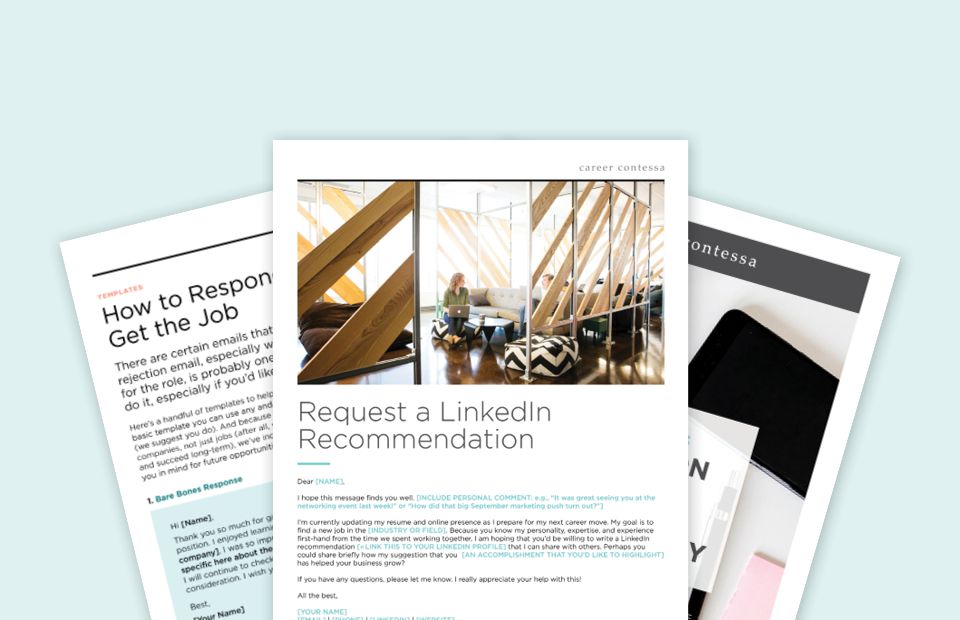Are you constantly interviewing for job opportunities without getting hired?
Put a stop to the rejection once and for all—this is what a recruiter wants to hear.
I have spent countless hours interviewing candidates as a former hiring manager and recruiter. While many of them were probably very capable, only a few of them walked away with job offers. During this time, I was so focused on my own responsibilities and time constraints that I rarely thought about the interviewing process from the candidate’s perspective.
(Horrible, I know!)
Now that I’ve been coaching clients through career transitions for three years, I better understand how frustrating it can be to go on seemingly endless interviews and walk away with zero feedback and no offers. You are probably left asking yourself what you did wrong and wondering if you are as qualified as you thought.
You had a good connection, you did your research, and
your outfit was on point—what went wrong? Since asking yourself (or your friends) that question probably won’t get you any closer to a job offer, here are some tips— from someone who used to sit on the other side of the desk—to help you walk away from that next interview with a job offer in hand.
Table of Contents
Have a Clear Personal Brand
The best piece of advice I can give you is to have a strong sense of your personal brand and effectively
control your message.
The best piece of advice I can give you is to have a strong sense of your personal brand and effectively control your message.
When I was a hiring manager, I often did hours of interviews back-to-back with numerous candidates. As much as I wanted to get to know each person individually, they inevitably blended together as the day went on. As a result, I implemented a system that I know other recruiters and hiring managers also use: After each interview, I would write my recruiting team a one-two sentence email with a summary of the candidate and next steps.
For example, a good interview recap would read something like this: “I’d like to bring Jessica in for an in-house interview. She has a very strong mix of leadership ability and technical expertise, and I think she would be a good fit for the culture, especially in the area of accepting critical feedback."
The most important thing you can do for yourself in the interviewing process is to control this message. Know what you want the hiring manager to write about you, and make sure to highlight these
key strengths and capabilities consistently throughout the interview process.
Everyone has great strengths, but rather than trying to communicate them all, focus on a few key ones and share them to help you stand out. A clear message will make the recruiter and hiring manager’s job easier—and make you more memorable in the end.
A clear message will make the recruiter and hiring manager’s job easier—and make you more memorable in the end.
Position Yourself for Each Role
Now that you know you need to focus on
communicating your strengths to the hiring team, it’s time to be strategic about what to highlight for each job.
While these attributes probably won’t be ranked, the order in which they appear in the job description will give you a good idea of what’s most important to the hiring company.
So think about your natural talents, your acquired skills, and your strengths—and then focus in on the most relevant ones for each role. Doing this will take a bit more work upfront, but it will have a big payoff when you are able to clearly communicate your value in an interview, and land that offer.
Tell Your Story Effectively
The third important step for interviewing effectively is to think strategically about how to answer the
interview questions and tell stories that make your strengths so clear that even the most checked-out interviewer can’t help but notice how amazing you are.
The biggest mistake I’ve seen in interviews is that candidates answer
behavioral interview questions too literally, rather than using them to really describe how they were able to be successful.
Let’s look at an example of what I mean. In answering the question, “Tell me about a time you were able to
manage a difficult project successfully,” you might reply:
This is an Acceptable Answer:
“When I was at XX Company, I had to take over a project that was behind schedule and already at budget with more work to be done. I was able to step into a new team and get the project back on schedule to eventually deliver on time.”
That response is fine—and it certainly answers the question—but it doesn’t tell me much about you, or what makes you a better project manager than the other candidates I’m going to talk to today.
But a Better Answer Would Be:
“When I was a project manager at XX Company, I had to take over a project that was behind schedule and at budget with more work to be done. I realized that I first had to understand what had been done and how the problems had been created. I looked into that by holding one-on-one meetings with all members of the project team. As a result of these meetings, I realized the previous struggles resulted from unclear responsibilities, so I brought everyone together and re-defined each person’s role. After we did that, tensions decreased, each person was doing work aligned with her strengths, and getting the project back on schedule was actually not that difficult.”
Do you see the difference?
The second answer is so much more powerful because you have explained not just what you accomplished, but how and why you did it. The second answer gives a much clearer picture of what you are good at and how you think, which is what the interviewer was really asking about in the first place.
The job hunt is never easy—and it can be exhausting to go on
interview after interview. But if you follow these three simple tips, you are much more likely to create a lasting impression from the start, and quickly land the job offer of your dreams.











